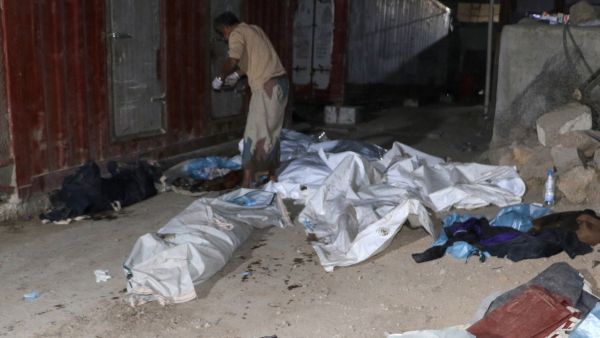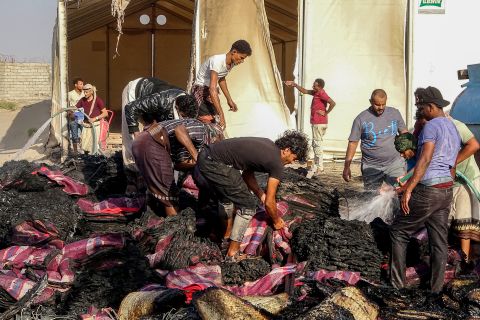ALBAWABA- At least 35 people were killed in a U.S. airstrike targeting a detention center for African migrants in Sa'dah, northern Yemen, according to media affiliated with the Ansar Allah (Houthi) group.
Houthi media leader Naser Amer shared initial images from the site, describing the strike as a "crime of American aggression" against inmates at the Sa'dah Reserve Prison, which hosts over 110 prisoners, all are African of Ethiopian nationality.
Civil defense teams rushed to the scene, working to extinguish fires and rescue victims from the rubble.
U.S. airstrikes also targeted three residential homes in the Thaqban area of Bani Al-Harith District, resulting in multiple fatalities and several injuries.
The attack marks the latest deadly incident amid intensified U.S. air operations against Houthi-controlled areas since March 15.
Last night alone, U.S. strikes on Bani Al-Hareth and Sana'a reportedly killed numerous civilians, including women and children.
Heart-wrenching footage circulated online showed children trapped under debris calling for their deceased father and a woman crying out next to Al-Saleh Grand Mosque in Sana’a's al-Sabeen Square.
The Sa'dah strike, targeting a facility known for holding African migrants—many from Ethiopia and other nations seeking work in Saudi Arabia—has already triggered outrage.
Activists are raising fresh concerns about the ongoing American campaign, known as “Operation Rough Rider,” as the Trump administration simultaneously engages in nuclear negotiations with Iran, the Houthis’ main backer.
In a post on X, U.S. Central Command (CENTCOM) defended the operations, emphasizing that since March 15, they have conducted "an intense and sustained campaign" to restore freedom of navigation and deter the Houthi movement.
CENTCOM stressed that strikes were based on "detailed and comprehensive intelligence" to ensure "lethal effects" against Houthi targets while minimizing civilian casualties. However, they acknowledged intentionally limiting public disclosure about the specifics of current and future operations for operational security reasons.











